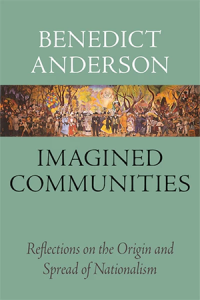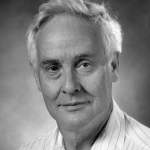Imagined Communities: Reflections on the Origin and Spread of Nationalism

Author: Benedict Anderson
Publisher: Polity Press
Year of Publication: 1983 (First Ed.), 2016 (Reprinted Ed.)
Print Length: 256 pages
Genre: Non-Fiction / Political Science
Topic: Imagination, Nationalism, Nation-Building & Nationhood, National Consciousness, Politics & Power, Memory, Remembering and Forgetting, Patriotism, Racism, Racist Nationalism, Imperialism
“This ‘sparkling’ and world-famous work examines what drives people to live, die, and kill in the name of nations—revealing the surprising origins and development of nationalism.” — The Guardian
The full magnitude of Benedict Anderson’s intellectual achievement is still being appreciated and debated. Imagined Communities remains the most influential book on the origins of nationalism, filling the vacuum that previously existed in the traditions of Western thought. Cited more often than any other single English-language work in the human sciences, it is read around the world in more than thirty translations.
Written with exemplary clarity, this illuminating study traces the emergence of community as an idea to South America, rather than to nineteenth-century Europe. Later, this sense of belonging was formed and reformulated at every level, from high politics to popular culture, through print, literature, maps and museums. Following the rise and conflict of nations and the decline of empires, Anderson draws on examples from South East Asia, Latin America and Europe’s recent past to show how nationalism shaped the modern world.
Table of Contents
Preface to the Second Edition
1. Introduction
2. Cultural Roots
3. The origins of National Consciousness
4. Creole Pioneers
5. Old Languages, New Models
6. Official Nationalism and Imperialism
7. The Last Wave
8. Patriotism and Racism
9. The Angel of History
10. Census, Map, Museum
11. Memory and Forgetting
Travel and Traffic: On the Geo-biography of Imagined Communities
Bibliography
Index

Benedict Anderson is an Irish political science, best known for his influential work on the origins of nationalism. He graduated from University of Cambridge (B.A. in classics, 1957) and was awarded a Ph.D. in government by Cornell University in 1967. His early work, including his doctoral dissertation, focused on Indonesian politics. His critique of the Suharto regime led him to be barred from entering the country until after the dictator’s fall in 1998. From 1965 until his retirement in 2002, Anderson taught in the department of government at Cornell University.
Source: https://www.britannica.com/biography/Benedict-Anderson
More from Benedict Anderson in this library, click here.
